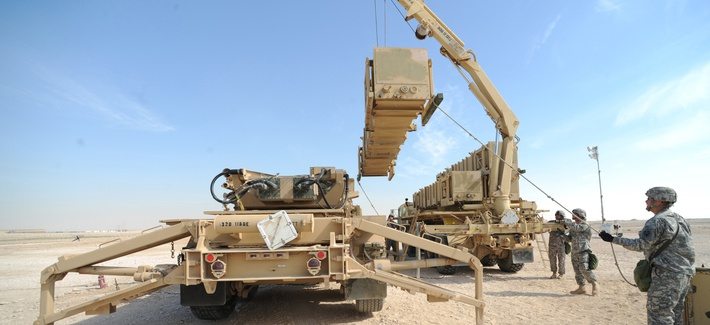The Kingdom’s request for additional interceptors could be the first of many new Mideast arms purchases aimed at warding off Iranian missiles.
Just two weeks after Western nations and Tehran struck a deal to limit Iran’s nuclear program, the Pentagon says Saudi Arabia wants to buy 600 new Patriot missile interceptors.
The $5 billion-plus purchase is likely just the first of many more as America’s Middle Eastern allies arm themselves in response to the nuclear deal, which would lift Iran’s conventional-arms embargo sanctions in five years and sanctions on long-range missile projects in eight.
“We saw this coming,” said Thomas Karako, a missile defense expert with the Center for Strategic and International Studies. “This is the consequence of leaving the Iranian missile program intact and in fact signaling sanctions will go down on it.”
Saudi Arabia and other Gulf Cooperation Council allies have been upping their missile defenses in recent years. In April, Riyadh bought $2 billion worth of Patriots, and just last week, the Pentagon bought $1.5 billion worth of Patriots for Qatar, United Arab Emirates, Taiwan, South Korea — and Saudi Arabia again.
“We’re going to see more of this,” Karako said. “So long as the Iranian missile threat exists, GCC and other countries in the region are going to have to invest in counters offensive and defensive.”
Iran has the largest and most diverse missile program in the Middle East, made up of short-range, long-range, anti-ship and cruise missiles, experts say. Middle Eastern nations have as little as four minutes to act if Iran fires one of these missiles their way.
Middle Eastern nations are also likely to boost buys of Terminal High Altitude Area Defense, or THAAD, interceptors, which can reach farther than Patriot to shoot down missiles.
UAE has already purchased THAAD and Saudi and Qatar are interested in the system. Also likely to pick up steam is the sale of a massive missile-tracking radar to Qatar.
The U.S. has been urging the GCC members to network their missile defense equipment together to better detect launches and so multiple countries don’t fire interceptors at the same missile.
The Saudi deal announced Wednesday is for the newest version of Patriot, called PAC-3. “The proposed sale will modernize and replenish Saudi Arabia’s current Patriot missile stockpile, which is becoming obsolete and difficult to sustain due to age and limited availability of repair parts,” the Pentagon wrote in its required notification to Congress of the deal. “The purchase of the PAC-3 missiles will support current and future defense missions and promote stability within the region.”
In June, Saudi Arabia used a Patriot to shoot down a Scud missile launched by Houthi rebels in Yemen.


